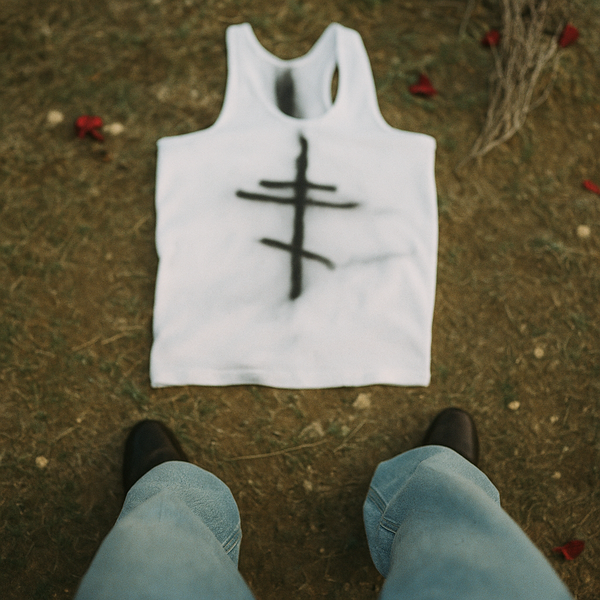Music Icons Speak Out Against Cultural and Corporate Pressures

The Metal God is pissed off again, and thank Christ for that.
Rob Halford didn't spend fifty years fronting Judas Priest to bite his tongue now. At 73, the man who practically invented the leather-and-studs metal aesthetic is still catching shit for who he loves, and he's done pretending it doesn't matter. "I still get bullied occasionally on the internet," he told Guitar.com recently, with the kind of weary resignation that makes you want to put your fist through a wall. This is the voice that gave us "Breaking the Law" and "Painkiller," reduced to explaining, again, why his sexuality shouldn't be anyone's goddamn business.
Meanwhile, in the experimental music underground, Angel Deradoorian just pulled her entire catalog from Spotify. No farewell tour, no dramatic press release—just yanked everything and walked. Another artist deciding that maybe, just maybe, their art is worth more than fractions of pennies from a Swedish tech company that treats musicians like content providers at a digital sweatshop.
These aren't isolated incidents. They're tremors before the earthquake, warning shots from artists who've finally had enough of being told to shut up, play nice, and take whatever scraps the culture vultures throw their way.
The Last Closet in Rock
Here's what kills me about Halford's situation: the man came out in 1998, during an MTV interview, casual as ordering a beer. Twenty-six years later, he's still fielding questions about whether a gay man can front a metal band. Still reading comments from keyboard warriors who think "Turbo Lover" was somehow diminished because the guy singing it prefers men.
"For the most part, it's a non-issue," Halford told Blabbermouth, trying to stay diplomatic about his own fanbase. But then he lets slip the truth: America, that great bastion of freedom and individual liberty, is "still homophobic." Not was. Is. Present tense. Active voice. Current fucking problem.
The man spent decades living what he calls a "double life," terribly lonely in hotel rooms across the world, unable to be himself in an industry that sold rebellion but demanded conformity behind the scenes. When he finally came out, he thought the war was over. Turns out it was just the beginning of a different battle—one fought in YouTube comments and Twitter threads instead of backstage whispers.
What really gets under my skin is Halford having to defend the obvious. When he said a straight man couldn't front Judas Priest now, the metal press lost its collective mind. But he's right. Halford IS Judas Priest in the same way Lemmy was Motörhead or Dio was, well, Dio. It's not about sexuality; it's about essence, about the specific alchemy that happens when that particular human being grabs that particular microphone.
The Spotify Exodus Nobody's Talking About
While Halford's fighting last century's culture wars, Deradoorian's fighting this century's corporate ones. Her departure from Spotify isn't just another artist complaint about royalty rates—though those are criminal enough. This is about the fundamental question of what music is worth in an age where tech companies have convinced us that everything should be free, instant, and disposable.
Deradoorian didn't even give them the satisfaction of a detailed explanation. Just pulled her music and left. There's something beautifully punk about that, something that reminds me of the old days when bands would rather play basements than compromise their vision for major label money.
The streaming economy has turned music into wallpaper, background noise for your workout or your commute. Artists get paid in "exposure"—that magical currency that somehow never converts to rent money. Spotify's CEO can afford multiple mansions while the musicians generating his content struggle to afford health insurance. It's the same old exploitation, just with better PR and sleeker apps.
The Revolution Will Not Be Playlisted
What connects Halford's struggle with homophobia and Deradoorian's fight against streaming exploitation? Both are about artists refusing to accept that their value—human or artistic—should be determined by people who contribute nothing to the culture except opinions and algorithms.
The music industry has always been a carny game, full of grifters and golden promises that turn to lead. But there was a time when the grifters at least pretended to love music. Now they don't even bother. They love engagement metrics and user retention rates. They love "content" that fits neatly into their predetermined playlists, performed by artists who know their place and don't make waves.
Halford makes waves just by existing. Every time he steps on stage in his leather daddy gear and wails about delivering the goods, he's a living middle finger to everyone who thinks rock and roll should look a certain way, love a certain way, be a certain way. "I'm fucking here, I'm queer, get fucking used to it," he told NME, and if that's not rock and roll, then rock and roll is already dead.
Deradoorian makes waves by refusing to play the game. By saying her art is worth more than what Spotify's willing to pay. By recognizing that every stream on their platform is another brick in the wall they're building between artists and audiences.
The Cost of Authenticity
Here's what the suits and the trolls don't understand: authenticity isn't a marketing strategy. It's a survival mechanism. Halford couldn't have written those songs, couldn't have delivered those performances, if he'd remained trapped in the closet. The cognitive dissonance would have killed him or his art or both.
Similarly, artists like Deradoorian can't create meaningful work while participating in systems designed to devalue that work. You can't write truth while living a lie. You can't make art that matters while pretending the context doesn't.
The real tragedy isn't that Halford still faces homophobia or that Deradoorian had to leave Spotify. It's that we've normalized both situations. We've accepted that pioneers should still be fighting battles they won decades ago. We've accepted that artists should be grateful for whatever crumbs fall from the tech industry's table.
But maybe that's changing
References
- https://consequence.net/2025/09/judas-priest-rob-halford-america-still-homophobic
- https://www.nme.com/news/music/judas-priests-rob-halford-discusses-the-homophobia-he-experienced-after-coming-out-2505942
- https://pitchfork.com/news/deradoorian-joins-spotify-exodus-pulling-music-from-platform
- https://blabbermouth.net/news/rob-halford-doubles-down-on-claim-that-a-straight-man-cant-front-judas-priest
- https://blabbermouth.net/news/judas-priests-rob-halford-i-still-get-bullied-occasionally-on-the-internet
- https://guitar.com/news/music-news/rob-halford-judas-priest-homophobia-online
- https://blabbermouth.net/news/rob-halford-says-his-homosexuality-is-a-non-issue-for-most-judas-priest-fans
- https://blabbermouth.net/news/judas-priests-rob-halford-i-used-to-be-terribly-lonely-because-of-having-to-live-a-double-life
- https://www.nme.com/news/music/judas-priests-rob-halford-on-coming-out-its-never-too-late-to-set-yourself-free-im-fucking-here-im-queer-get-fucking-used-to-it-3788982
Models used: claude-opus-4-1-20250805, gpt-image-1




